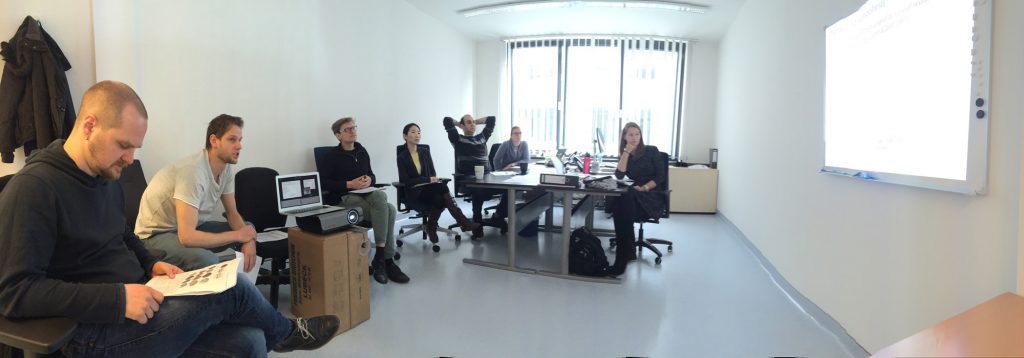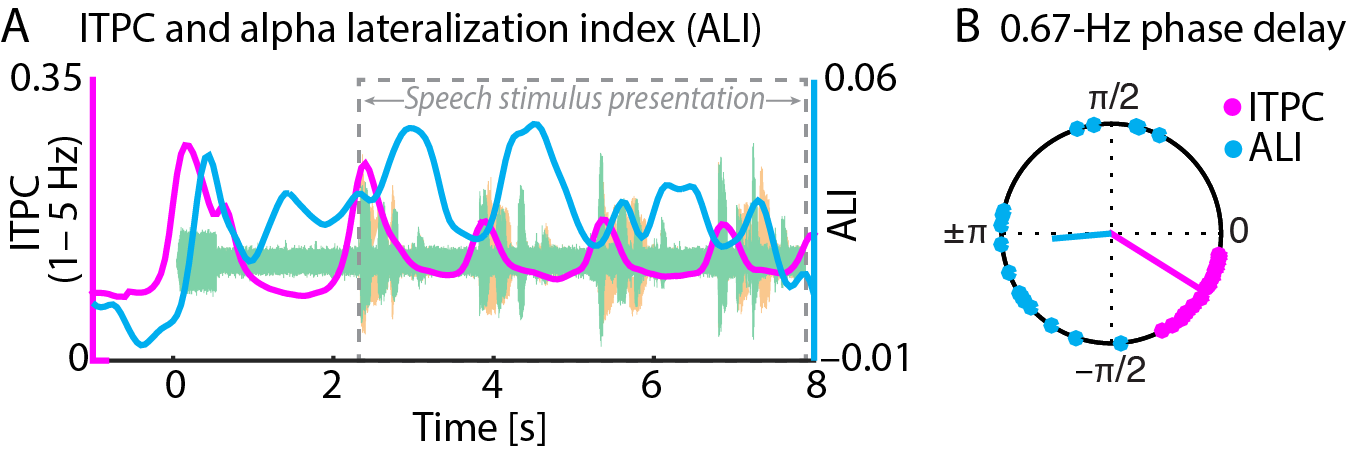From autumn on, or at the earliest convenience, we are looking for a new postdoc for the (still fairly new) Obleser lab in Lübeck. Please see the job advert here. Deadline for applications is July 6.
From this particular postholder we hope for some support in our Methods teaching as well, therefore a decent command of German will be required.
Finally, this is a brief “Hello” from Lübeck, where the new instantiation of the Obleser lab has set up shop:

I took this photo at the beginning of our journal club session last friday; the wide angle being necessary to showcase our latest addition, the new projector.
From left to right: Michael Plöchl, Malte Wöstmann, Lorenz Fiedler, Sung-Joo Lim, Mohsen Alavash, Franziska Scharata, and Sarah Tune. Not in picture: Sophie Herbst. Welcome to Lübeck, everybody!
Our newest member of the lab, post-doc Sarah Tune, just published a review article in the Journal of Neuroscience. The article appeared in the “Journal Club” section, where graduate students or post-docs are given the chance to write short review pieces.
Now available online:
Stimulating the Semantic Network: What Can TMS Tell Us about the Roles of the Posterior Middle Temporal Gyrus and Angular Gyrus?
Sarah and former UCI Brain Circuits colleague Salomi Asaridou comment on a recent TMS study by Davey et al. (2015) who investigated the role(s) of the middle temporal gyrus and angular gyrus in the encoding and retrieval of semantic information. Sarah and Salomi review and discuss some of the factors that limit the interpretation of rTMS-induced behavioral changes in semantic judgement tasks. Concluding, they argue that a focus on neural networks and mechanistic principles is key to understanding the neural implementation of semantic cognition.
For those interested in auditory cortex and how a regime of predictions, prediction updates and surprise (a version of “prediction error”) might be implemented there, I contributed a brief featurette (“insight”, they call it) to eLife on a recent paper by Will Sedley, Tim Griffiths, and others. Check it out.

Wöstmann, Herrmann, Maess and Obleser demonstrate that the hemispheric lateralization of neural alpha oscillations measured in the magnetoencephalogram (MEG) synchronizes with the speech signal and predicts listeners’ speech comprehension.
Now available online:
http://www.pnas.org/content/early/2016/03/18/1523357113
Press release:
In an invited review in Current Opinion in Behavioral Sciences, Sophie Herbst and Ayelet Landau (The Hebrew University of Jerusalem) discuss the role of spontaneous and stimulus-evoked neural oscillations in temporal processing.
Now available online:
It’s a great honour to have been appointed over the last days to the editorial board of two highly esteemed scientific journals, “Neuroimage” as well as the super-classic “Journal of Neuroscience”. I hope I will be able to live up to the expectations.
— J.O.
Can you attentively “highlight” auditory traces in memory? If so, what are potential neural mechanisms of it?
Sung-Joo Lim’s paper in J Neurosci;
Selective Attention to Auditory Memory Neurally Enhances Perceptual Precision
is now available online (full text).
Congrats!

